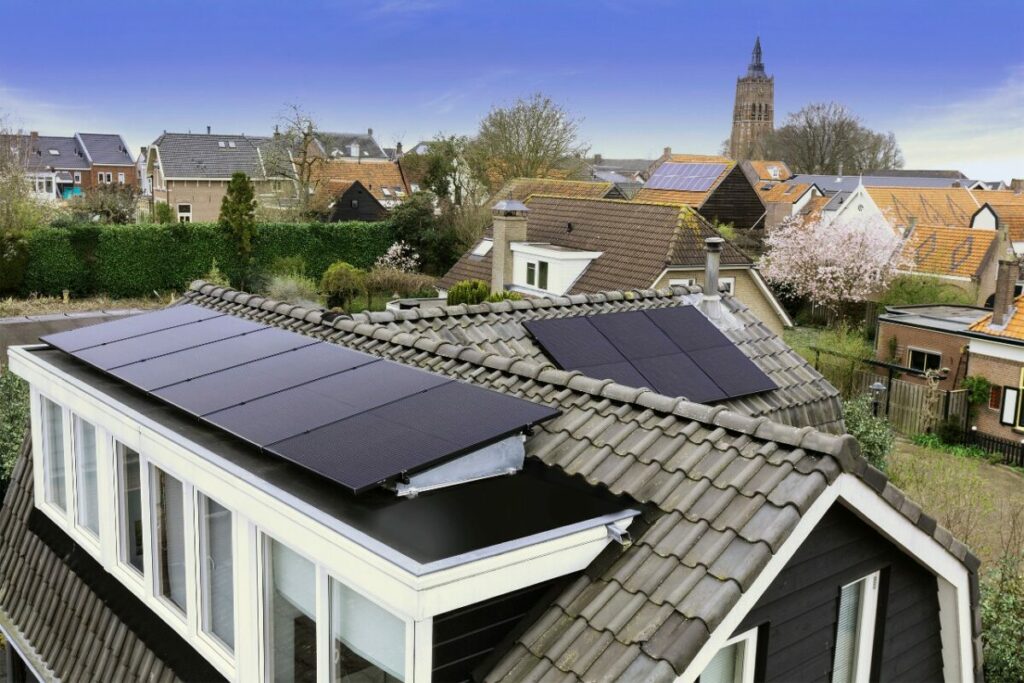
Research published by Halifax has revealed that 84% of UK households noted a reduction in monthly energy bills after installing solar panels.
According to the survey of 2,000 homeowners, rising energy bills are now a primary concern for them, with almost half (49%) of UK citizens citing this as a key challenge – and the strongest trigger for making energy improvements to their properties (39%).
More than half of the homeowners (56%) say they have recently adapted their home by adding insulation, double glazing or solar panels.
Those who have installed solar panels report strong benefits, with almost all (89%) of those with panels installed satisfied with their decision, a similar percentage saying they would recommend them to their friends and family (83%), and over four in five (84%) saying they’d seen a reduction in their energy bills.
Plus, over half (51%) have seen an improvement in their home’s energy efficiency through an updated EPC with an improved rating.
Savings of around £400-500 per year could be made on energy bills by transitioning to solar power, according to Energy Saving Trust estimates.
Andrew Asaam, homes director at Halifax, said: “With concern around the cost of energy bills and the climate crisis intensifying, more of us are looking for ways to bring down our energy usage.
“Transitioning to solar power can be a fantastic option to help reduce bills over the long term, especially when combined with a home battery or other energy-efficient measures such as the right loft insulation and energy-saving light bulbs.”
Ben Williams, chief commercial officer for Effective Home, said: “Our recent study underscores a growing interest among British consumers in adopting solar panel technology, although the anticipated expense associated with installation remains a significant barrier for many.”
Solar for the British people
As solar panel adoption, especially in the domestic sector, continues to grow across the UK, so have the benefits. After the spread of the news of these benefits, a further surge in installations surely follows, creating a healthy environment for small-scale renewables growth.
This cycle is evident from the recent figures published by the Microgeneration Certification Scheme (MCS), which showed that 2023 was the UK’s “best ever” year for renewable energy and heating installations.
With a total of 220,500 MCS-certified installations having been registered across 2023 so far, the UK beat its 2022 figures by the end of September.
Solar photovoltaic (PV) has been confirmed as the leading technology for these installations, coming in at 183,022. This exceeded 2022’s figures by 45,022, which saw 138,000 certified installations across the UK in the year.
This technology is also being supported by significant policymakers, with a YouGov poll from February 2024 revealing that 79% of all MPs support making solar panels mandatory for all new-build homes from 2025 onwards.
Three in five MPs (approximately 61%) believe that residential battery energy storage systems (BESS) should also be mandatory in new homes. The figure rises to 77% when focused solely on Labour MPs.
Regarding companies taking action on the opportunity for energy bill savings, Octopus Energy announced a new partnership with housebuilder The Hill Group in December 2023 to build 89 solar-powered and energy bill-free homes.
The houses will be equipped with a number of low-carbon technologies, including solar panels, home storage batteries, and heat pumps. The combined capacity of these technologies is set to exceed the energy requirements of each home and will be integrated and optimised by Octopus’ Kraken platform.
According to Octopus, the batteries installed will either be 9.5kWh or 13.5kWh batteries, depending on the size of the home. The number of solar panels will also vary (between 18 and 24) in accordance with the property’s size.

